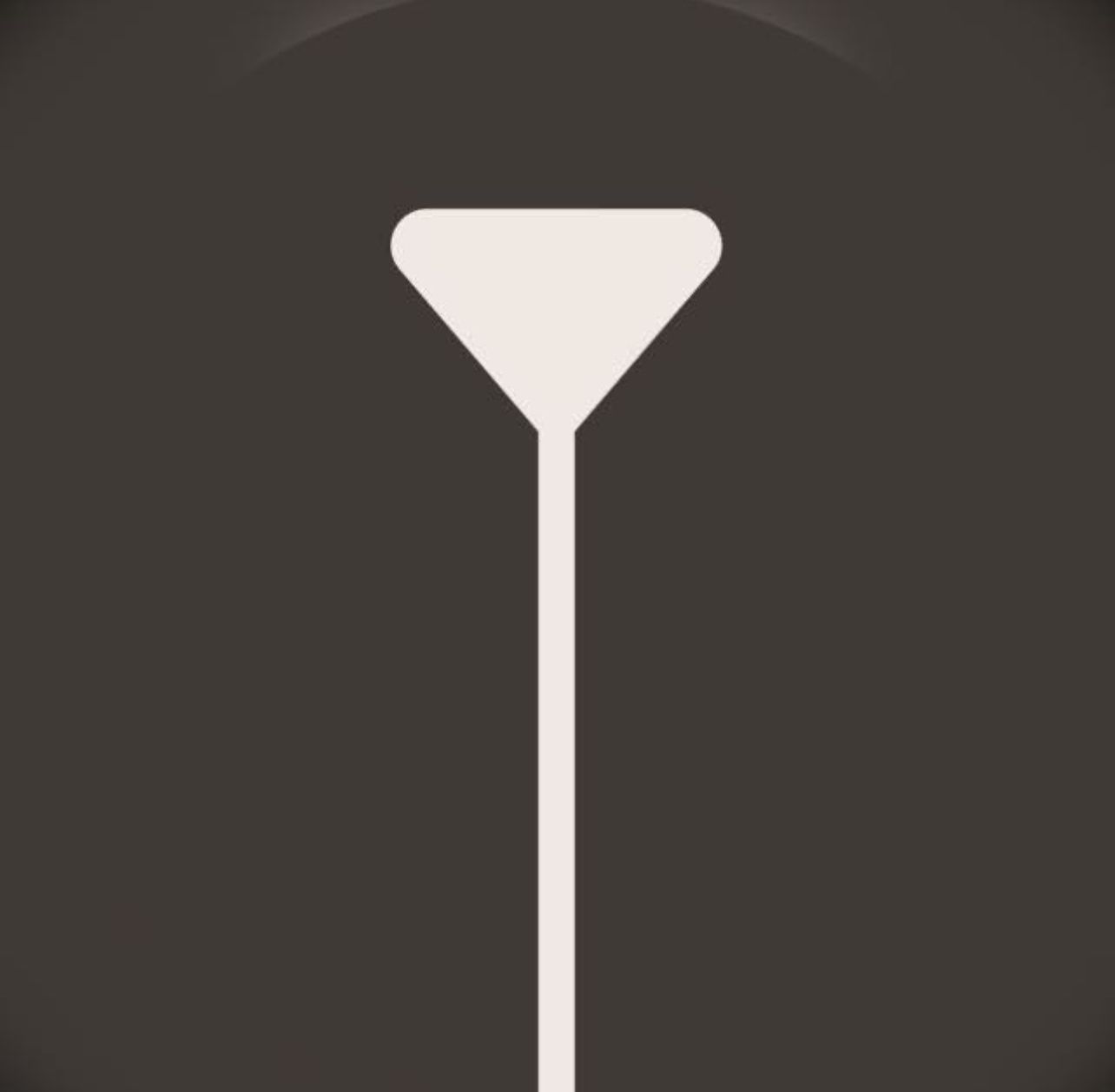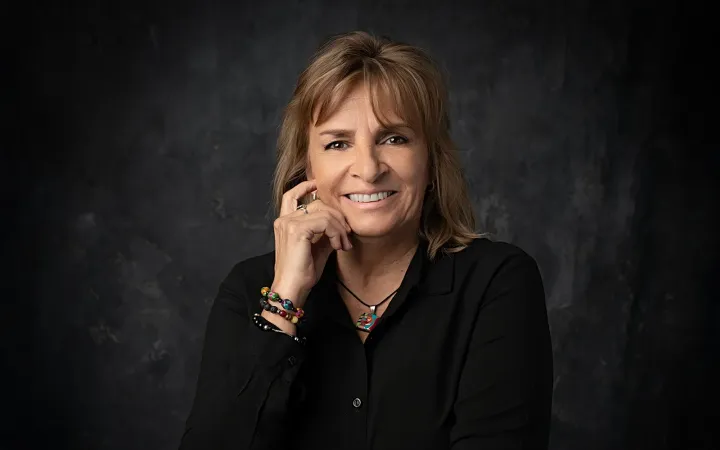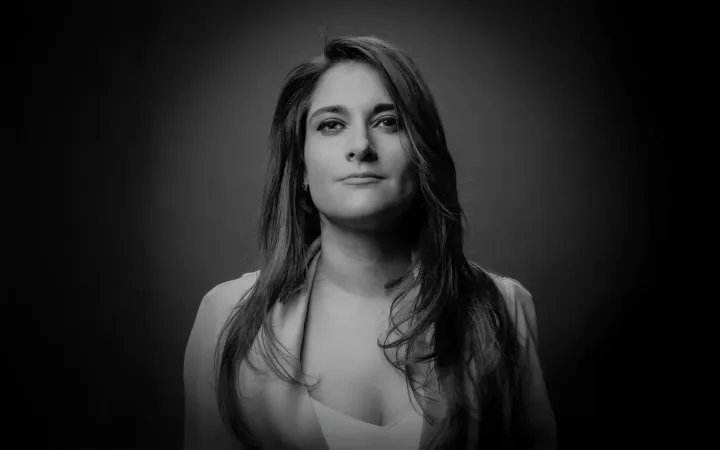Por Mariana Conde

La ginecóloga hace ochos con su aparato de ultrasonido sobre mi abdomen y me dice lo que mi cuerpo me viene gritando hace meses: ¡Ah no, mujer! Aquí ya no hay na’. Y aunque la inauguración oficial de mi menopausia técnicamente será a los doce meses de la última regla, ella me confirma que no hay más que esperar, esta fábrica ya clausuró sin necesidad de protocolo alguno. Na’ que hacer, ya olvídate de gastar en Kotex, con esa plata invierte en un ventilador, me dice con su pegajoso acento colombiano. También entiendo que aunado a ciertas molestias he entrado a la etapa más ruca de mi vida: para no encender el boiler interno recomienda no tomar, no fumar, no comer azúcar, lácteos ni desvelarse, lo único divertido que sí se permite es lo último que se me antoja en estos días, muy a pesar de mi compañero de cama. Es una etapa, pasará, ¿cuándo? Eso no se sabe, puede durar de uno a doscientos años… Yo, no quiero oír más na’ y solo siento que de repente apagaron el aire acondicionado del consultorio.
Aunque estas noticias no son una sorpresa para mí, de alguna forma sellan la tapa del ataúd de mis años reproductivos; pienso si debería hacerme una ceremonia de despedida, pero la reunión de queso pan y vino que se me antoja se ha tornado de pronto incompatible con mi nueva dieta post-meno.
Celebraré llenándome de información. Busco un ángulo distinto y decido hacerle esta pregunta a la parvularia inteligencia artificial de Google que descubro se toma las cosas de manera muy literal:
¿La menopausia es chistosa? No, la menopausia no es chistosa, sino que puede traer consigo una serie de síntomas que pueden afectar la calidad de vida de las mujeres, bla,bla,bla, y se arranca a enlistar los distintos fastidios que padezco un día sí y otro también.
Nada nuevo, pero me parece al menos más honesta que la versión en inglés que imbuida ya en la cultura woke me reitera que, en efecto, no es chistosa y hay que “honrarla”: No, menopause is not funny, and it's important to understand and honor it.
What?! O mejor dicho ¿neta?
La verdad yo quisiera hacer muchas cosas con la menopausia como mandarla al rancho de cierto expresidente, aniquilarla, postergarla y otras más diabólicas, pero segurito que no rendirle honores; no es bandera, himno ni nación, aunque a ratos pareciera que estoy desterrada en ella por el resto de la eternidad y que las únicas compatriotas que me entienden son las otras menopausianas.
De hecho, eso es algo más que me gustaría hacer, cambiar el término menopáusica que se usa como un proyectil más en el arsenal de burla, agresión, condescendencia o anulación contra las mujeres, incluso por las de su mismo género que se encuentran en otra etapa de la vida, no necesariamente previa (podría jurar que mi mamá me llamó así este verano tras una acalorada discusión cuando creyó que no la escuchaba, pero era julio en Mérida…)
Vieja menopáusica era el peor insulto que se nos ocurría en la prepa para una maestra malhumorada, para cualquier señora que te llamara la atención en el súper por sobar todos los aguacates o que te pitara en el tráfico mientras te rizabas las pestañas.
Resulta que ahora tú eres esa señora. ¿Y qué hacer con esto?
De hecho, sé que hay mujeres que le dan la bienvenida, quieren dejar las molestias menstruales de lado y no tener ya que cuidarse de un embarazo no deseado, aunque nunca saben cómo les va a tocar. Yo no soy una de ellas; la acepto como parte inevitable de la vida y comprendo que cada etapa tiene su riqueza, pero la reconozco como una señal de declive y preferiría mil días de regla a uno de bochornos.
El padre García, venerado presbítero de la sociedad yucateca, famoso por sus soporíferos sermones dictados sin mover los labios y salpicados de reprimendas para quien faltara al protocolo de la misa (chamaco de gris que estás llegando, la misa empezó a las 5.30; niñas, aquí no se viene desmanteladas, no es disco; señoras de la fila tres dejen de cuchichear) tenía un dicho favorito hablando de pecados carnales: el hombre es fuego, la mujer estopa; viene el diablo y sopla.
Cómo pienso últimamente en esa imagen, solo que no hay hombre ni estopa, soy yo que me sofoco en mi propio fuego con algún maldito diablo por ahí azuzándolo con un fuelle soplador.
La mejor forma que tengo para describir un bochorno es así: estás tranquila, escribiendo, o ayudando a tu hija a hacer la tarea, tal vez desempacando el súper y de repente, ¡puff! se enciende un piloto que no sabías que tenías en la nuca y en milésimas de segundo ya estas sudando: el interior de los codos, las corvas de la rodilla, el espacio entre las chichis y por supuesto aquella sección donde rozan tus muslos –porque a esta edad rozan, no nos hagamos– es decir, cualquier punto donde el sudor se vuelva de forma instantánea pegajoso y particularmente desagradable. Este calor es de una eficiencia impresionante, más rápido que un láser o un microondas; pienso que algún día un genio descubrirá cómo hacer uso de esta generación de energía en sustitución de los paneles solares. Luego, casi tan rápido como llegó se va, pero ahí quedas tú ofuscada y sudorosa con la cabeza en icebergs y bubulubus congelados sin recordar qué demonios estabas haciendo cinco minutos antes.
Pero ahí no acaba, ese instante infernal puede repetirse las veces que le dé la gana a capricho de la sensación térmica, cantidad de cafeína o azúcar consumida, horas de sueño, nivel de estrés y en general, del grado de encabronamiento del día. La cereza en el pastel es que una hora favorita del bochorno –y su socio el cortisol– es por ahí entre las dos y cuatro de la mañana cuando deberíamos estar oscilando entre las etapas del sueño; si alguien descubre cómo seguir el gran consejo de ay, vuélvete a dormir, me lo deja en comentarios, porfa.
En las batallas por la temperatura de mi cuarto se han intercambiado los bandos, en pleno invierno yo me pongo el ventilador encima a pesar de traer pijama de shorts mientras que mi esposo, helado, le baja cuando logro conciliar el sueño. No hablaré de otro tipo de batallas de dormitorio pero es bien sabido que este tampoco es el período más sexy de la vida. Mucho se habla de la comezón del séptimo año, pero la urticaria de la menopausia no me parece menor.
El síntoma más emblemático quizá sean los mentados cambios de humor que tanto se han exagerado y dan para su propia categoría en la comedia. En realidad, lo que pasa no tiene nada de cómico y va más o menos así: el descenso en la producción de estrógeno y progesterona en la menopausia puede afectar los niveles de serotonina, hormona encargada de la comunicación entre las neuronas y el resto del cuerpo. La serotonina es crucial, interviene en la memoria, temperatura corporal, sueño, hambre, apetito sexual y, por supuesto, en el estado de ánimo… ¿a alguien le checa? Señor, usted también siga leyendo que estoy hablando de su mujer.
Si sumamos a aquella tormenta perfecta que el promedio de edad en que las mujeres comienzan a tener hijos continúa aumentando, nos dirigimos a un escenario perverso que, como yo, hoy vivimos muchas: enfrentar la menopausia a la edad en la que tu abuela ya lo era pero en la que tú eres mamá de niños que aún no saben sumar. Trata de repasar la tabla del tres con una bendición de siete años –que es tu hijo, no hay a quien pichárselo– una tarde de temperatura récord en mayo cuando esperando la respuesta a 3 x 7 te azota un fuego interior que casi nubla tu vista con espejismos que oscilan entre una alberca de hielos y tus manos en el cuellito de la criatura, así más o menos se siente ser mamá menopáusica. La gran ventaja para estos hijos, porque Dios aprieta pero no ahorca, es que ya nunca los persigues para que se pongan el suéter o pants en lugar de shorts, en tu cuerpo siempre es verano y como todos saben, los hijos viven bajo los mandatos de la temperatura matriarcal.
Bromas aparte, hay muchos otros efectos potenciales con consecuencias más delicadas de salud que pueden ir desde problemas ginecológicos y gástricos hasta enfermedades de la tiroides, cardiovasculares, diabetes, osteoporosis y depresión clínica.
Siendo este un hito considerable por el que pasaremos todas parece increíble que nos siga tomando por sorpresa a la mayoría de las mujeres y a nuestras parejas masculinas, y los menciono a ellos porque este es un tema que nos afecta a ambos y que ignoramos bajo nuestro propio riesgo. Es como la muerte, en el fondo sabemos que llegará pero una no quiere pensarlo mucho y nunca se está preparada, solo que en el caso de la menopausia podemos y vale la pena estar mejor informadas. No digo que el estarlo nos ayude a combatir la menopausia, ésta, de que llega, llega, pero sí puede ayudarnos a sobrellevarla mejor.
Por fortuna, el estatus casi de tabú en el que se tenía enterrado el tema ha cambiado radicalmente en la última década y ahora se habla de él con más apertura. Cada vez se conoce a mayor profundidad la forma como funcionan el sistema endocrino y las hormonas y esta información está disponible en internet, redes sociales y las cuentas de un sinnúmero de gente que se ha especializado en el tema. Yo no soy experta, pero sé por prueba y error que puedo tener un mejor día si no tomo café, si como sano evitando azúcar, alcohol y gluten y duermo mis horas. Hay también distintos suplementos que pueden ayudar según el caso de cada quien y ciertos chequeos de rigor para todas a partir de los 40 y otros después de los 50, tu médico podrá decirte cuales son. En mi caso, llevo tiempo cumpliendo con la mamografía y papanicolaou anual y no se me había ocurrido hacerme una densitometría; cuando lo hice porque iba dentro del checkup de mi seguro me llevé una sorpresa, pero pude comenzar a atender mi salud ósea a tiempo.
Un aspecto preeminente sobre el cual la información y opinión médica ha cambiado mucho es la terapia de reemplazo hormonal. A raíz de un estudio hecho en 2002 esta fue satanizada y se le relaciona con efectos como mayor incidencia de cáncer y eventos cardiovasculares. Ahora sabemos por múltiples investigaciones posteriores que dicho estudio tuvo fallas de diseño que afectan sus conclusiones y muchos coinciden en que la terapia de reemplazo hormonal tiene más ventajas que desventajas en la salud de la mujer, aunque por supuesto cada caso debe evaluarse de manera individual y hay personas con factores de riesgo, antecedentes y comorbilidades que no somos candidatas para recibirla. También existen ya mejores alternativas como las hormonas bioidénticas, vs las viejas hormonas sintéticas. Para saber más sobre este tema hay un podcast excelente de The New York Times que pueden encontrar aquí: https://www.nytimes.com/2023/02/12/podcasts/the-daily/menopause-treatment-hormone-therapy.html
Lo cierto es que, en menor o mayor grado, la menopausia es una friega. No es una enfermedad, pero da más lata que algunas y nunca sabemos cómo nos va a tocar ni cuánto tiempo nos acompañará. No hay donde esconderse y me parece que vale la pena aprender a manejarla lo mejor posible para que su impacto en nuestra calidad de vida sea un poco más leve y no dejar que nos enloquezca a nosotras y a los que nos rodean. Tal vez incluso para evitar que cualquiera nos grite en el tráfico vieja menopáusica.
Las opiniones expresadas son responsabilidad de sus autoras y son absolutamente independientes a la postura y línea editorial de Opinión 51.






Comments ()